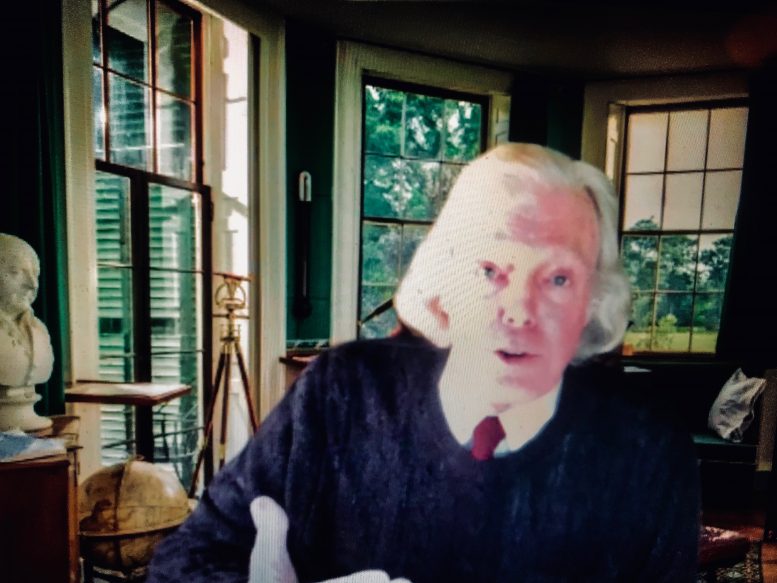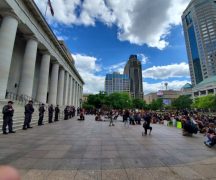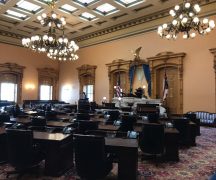By Susan Tebben
Ohio Capital Journal
Despite two different pieces of legislation seeking to ban the practice and a nationwide movement against teaching race’s impact on history and society, the state says they haven’t heard a public outcry.
A spokesperson for the Ohio Department of Education said it has received “only a small handful” of concerns about an academic study called “critical race theory.”
The term is used by politicians to decry education curriculum that explains history through the lens of racial impact, and how it affects society, the economy and even the justice system. Leaders of a movement and legislative efforts against the practice claim it pits different races against one another and creates “discomfort” for white students.
The Conservative Movement
Conservative groups like the American Legislative Exchange Council (ALEC) and The Heritage Foundation point to a New York Times initiative called the 1619 Project, started in 2019 to mark the 400th anniversary of the beginning of American slavery, as a focal point in the debate against teaching students history framed by race.
Bills in other states have threatened to cut funding for school districts that use the project as part of their curriculum, seeking to attack the perceived problem at the state level, rather than a blanket federal ban, which hasn’t happened despite attempts.
None of the multiple requests for comment on their sponsored legislation were returned from Ohio state Reps. Don Jones, Sarah Fowler Arthur, or Diane Grendell.
In a virtual event hosted by ALEC and titled “Workshop Against Critical Theory’s Onslaught: Reclaiming Education and the American Dream,” Robert Woodson, creator of a new form of curriculum supported by the conservative groups called 1776 Unites, said the political left has “hijacked the rich moral authority of the Civil Rights movement” by supporting the race theory.
“Critical race theory is a new racism, and in many ways it’s more insidious than the old racism,” Woodson said. “At least the racism that is practiced by the (Ku Klux) Klan and the John Birch Society is external. But the new racism is being done in the name of promoting social justice for Blacks.”
In the same workshop, Heritage Foundation education fellow Jonathan Butcher said even the concept of the theory “is not something that can peacefully co-exist as designed with the classical, liberal world that we have founded the United States on.”
“We’re talking about entire states here, in places like California, Washington state, even in Ohio where the state Board of Education passed a resolution that included requirements for diversity training among members and educators,” Butcher said.
Another member of the Heritage Foundation, Angela Sailor, spoke on the messaging needed to keep the public aware of the concepts the foundation feels are “the doctrine of victimhood.”
“Through involvement and in partnership with school boards, the media and relationships with teachers, we have to insist on K-12 curriculum and transparency,” Sailor said. “State policymakers should require that public schools make that curricula and the resources available to the public.”
Locally, a pre-recorded call went around the Rocky River Local School District before the May primary, when the district had a levy on the ballot, saying the district had been infiltrated “by radical, Marxist teachers, staff and administrators” who wanted to implement the racial education.
The call was funded by the “Freedom for All PAC,” and treasurer Tom Zawistowski, according to the recording. Zawistowski is a leader of the Portage County Tea Party and has led several other conservative political action committees.
The call claims the theory “indoctrinates your children and grandchildren with race-based hate of white people, of American history and of capitalism, with a goal of Communist-takeover of our nation.”
The treasurer of the PAC asking to restore American history education was also the source of an ad threatening to invoke martial law and a temporary suspension of the Constitution to redo the 2020 election Donald Trump lost.
Without the removal of these educators, the call said, the people of the district should not approve of more funding to the district.
Educating on Race
A professor who has studied and taught the concepts of race as part of history for two decades says the movement to rid the country of critical thinking on race isn’t a surprise.
“This is very much within (the conservative) playbook, although they’ve become more aggressive since Trump,” said Vincent Jungkunz, associate professor of political science at Ohio University and its Center for Law, Justice & Culture.
What does surprise Jungkunz is how the academic concepts came to be in the spotlight, which he says had nothing to do with any push by educators or liberal advocates.
“It just was not something that was extraordinarily prominent, but the Republicans put it on the map,” Jungkunz said.
Still, the idea of thinking critically about how race played a role in American history is not based in some idea of white hatred or blame, he said. Stemming back from the U.S. Supreme Court’s “separate but equal” segregation decision in Plessy v. Ferguson and the Brown v. Board of Educationdecision that negated that ruling, thinking critically about race has been a part of the American way since before the Civil Rights Movement, Jungkunz said.
The academic “critical race theory” emerged in the 1980s “as a result of the frustration with the inability of law to really address racial inequality,” he said.
Because the courts only decided what was prohibited in a legal sense, and not in a societal sense, the larger issue became how to deal with racial issues that are present in America but can’t be dealt with in court.
“Critical race theory has nothing to do with ‘all white people are bad, we hate white people,’” Jungkunz said. “It’s more about thinking about that identity that stated that we are superior and we can do these horrific things and it’s justified.”
But discomfort is a part of learning about race in the state and country, because thinking critically about race “asks us to do the hard work,” according to Jungkunz.
“White people are so worried and freaked out that if they admit something, that some damnation is going to come upon them, and that’s not what this is really about,” Jungkunz said.
Ohio bills
Both Ohio bills on the subject, House Bill 322 and House Bill 327, were introduced in the Ohio legislature on May 25, but neither has been referred to a committee for supporter and opposition testimony.





